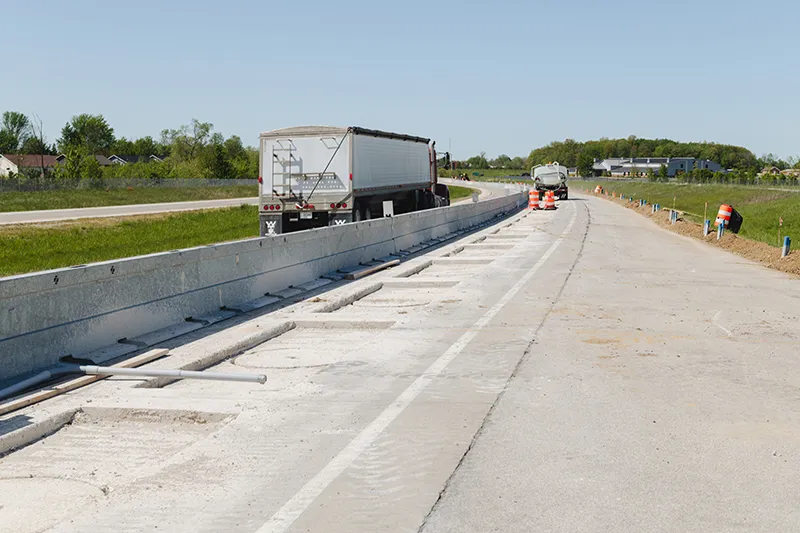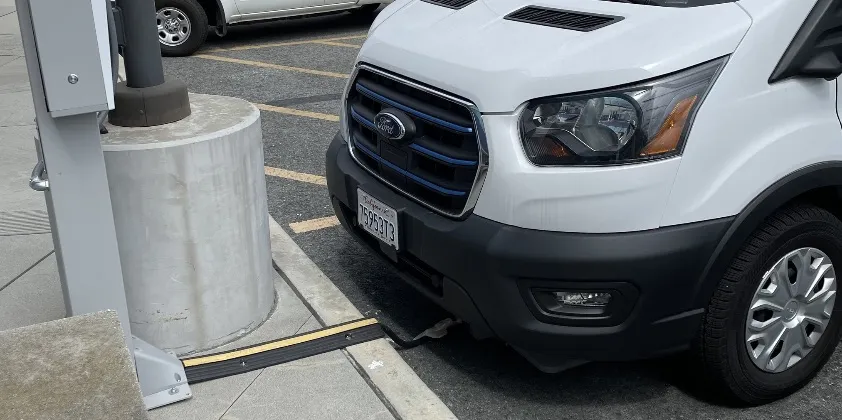Two latest wi-fi charging pilot packages present the potential for the expertise’s use with industrial EV fleets.
The Indiana Division of Transportation and Purdue College are working to outfit a quarter-mile stretch of U.S. Freeway 231 in West Lafayette, Indiana, for wi-fi charging of electrical vehicles. A take a look at truck offered by Cummins will drive over this part of highway in assessments beginning subsequent yr, based on a Purdue College press launch.
Building of the take a look at highway part started April 1 and is predicted to proceed into the autumn. This follows laboratory assessments to see if sections of freeway concrete and pavement might deal with the load of loaded vehicles.

Indiana roadway for use in dynamic wi-fi charging take a look at (picture through Purdue College)
The Purdue-designed charging {hardware} is meant to work at larger energy ranges than different methods demonstrated within the U.S. to date, the college claims, making it higher suited to heavy-duty autos. If assessments show profitable, Purdue and the Indiana state authorities hope so as to add charging to an extended stretch of freeway throughout the subsequent 4 to 5 years.
This dynamic wi-fi charging—wherein autos are charged as they drive alongside—has already been the topic of assessments and pilot packages in Michigan, Sweden, and Israel. Stellantis examined the thought with an electrical Fiat 500 in 2022, and a Ford patent submitting signifies the Blue Oval is engaged on it as properly.
Wi-fi-charging firm WiTricity additionally just lately launched a six-month pilot program with Worldwide Transportation Service LLC to check wireless-charging tech on a fleet of Ford E-Transit vans on the Port of Lengthy Seashore. On this case, autos park over a pad to cost, with efficiency claimed to be equal to standard Degree 2 AC chargers.

Ford E-Transit with WiTricity wi-fi charger
There are a number of potential advantages of wi-fi charging, together with better accessibility to charging that might enable for smaller EV batteries, which might in flip cut back the associated fee and weight of those autos. And general, wi-fi charging might make EVs extra livable on a everyday foundation by eliminating cables and connectors.
The larger stage of automation allowed for by wi-fi charging additionally helps set the stage for self-driving electrical vehicles, as it could take away yet another level of human involvement within the course of. However self-driving vehicles themselves should show to be dependable and commercially viable—positively not a given.